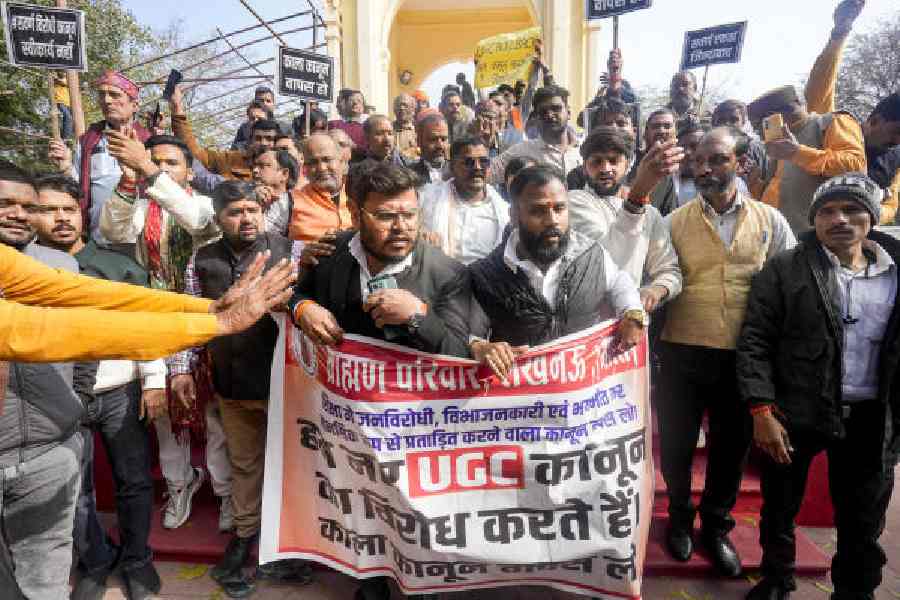
Scottish Church College will become the fifth institution under Calcutta University and the second run by Christian missionaries to be granted autonomy.
The Church of North India (CNI), which runs the 185-year-old north Calcutta institution, has recently put its seal of approval on the autonomy move. A meeting of the college's governing body will soon be held to discuss ways to obtain the autonomy. Sources said the target is to get it by 2017.
"The management has accepted the proposal to upgrade the college to an autonomous institution. The matter has been conveyed to students and faculty members," college rector John Abraham said. "We can proceed once we get feedback from the teachers."
Scottish Church, now a state-aided college, enjoys certain administrative freedom for being a minority institution. For example, it can appoint teachers on its own despite getting substantial grants from the government for paying the teachers' salaries.
A CNI source said one of the biggest advantages of autonomy would be the academic freedom. tag. As an affiliate of Calcutta University, the college enjoys no academic freedom.
University Grants Commission (UGC) guidelines say once a college attains autonomy, it is entitled to determine and prescribe its own courses and syllabi, restructure and redesign courses to suit local needs, frame admission rules in consonance with the government's reservation policy, evolve methods of assessing students' performance, conduct its own examinations and declare results, use modern tools of teaching to achieve higher standards and promote practices such as community service projects for the benefit of society at large.
Even after the college attains autonomy, its degrees would have its seal as well as that of Calcutta University.
A senior science teacher Metro spoke to welcomed the move considering the extent of academic freedom the college would enjoy once it's made autonomous.
"A large portion of the syllabus that Calcutta University follows is based on theories and has become obsolete," the teacher said. "Our students are admitted through a rigorous screening process but we are unable to offer quality science education because we are not allowed to follow a curriculum of our choice. Given our high-standard faculty and infrastructure, the autonomy - if implemented properly - can help us compete with some of the best institutes in the country."
Another teacher said the college enjoys plenty of administrative freedom for being a minority institution. The autonomy would give the college more powers to run it according to the policies of the church, the teacher said.
A teacher of the humanities stream said teachers should discuss the proposal in detail with the authorities. "That way we will get a clear picture about the job security of faculty members once the college become an autonomous institution."
Another senior teacher said the autonomy status should be obtained at the earliest because it would enable the institute to go for tie-ups with industry and foreign universities for conducting collaborative research and other academic programmes.
A higher education department official said the college has informed the government about its autonomy plans and the government has no objection to it.
"The HRD ministry has instructed us that state-aided colleges ranked A by the National Assessment and Accreditation Council should be allowed to seek autonomy," the official said. "Scottish Church has been awarded an A grade for two consecutive terms. Therefore, we have no problem if the college wants to proceed with the proposal."
A college gets autonomy after a series of inspections by the UGC. Once the UGC gives its nod, the affiliating university - in this case Calcutta University - will have to approve the proposal.
St. Xavier's was the first college under CU as well as in the state to be granted autonomy in 2006.
The other three autonomous colleges are Ramakrishna Mission Vidyamandira, Belur, Ramakrishna Mission Sikshamandir, a BEd college in Belur, and Ramakrishna Mission Residential College, Narendrapur.










